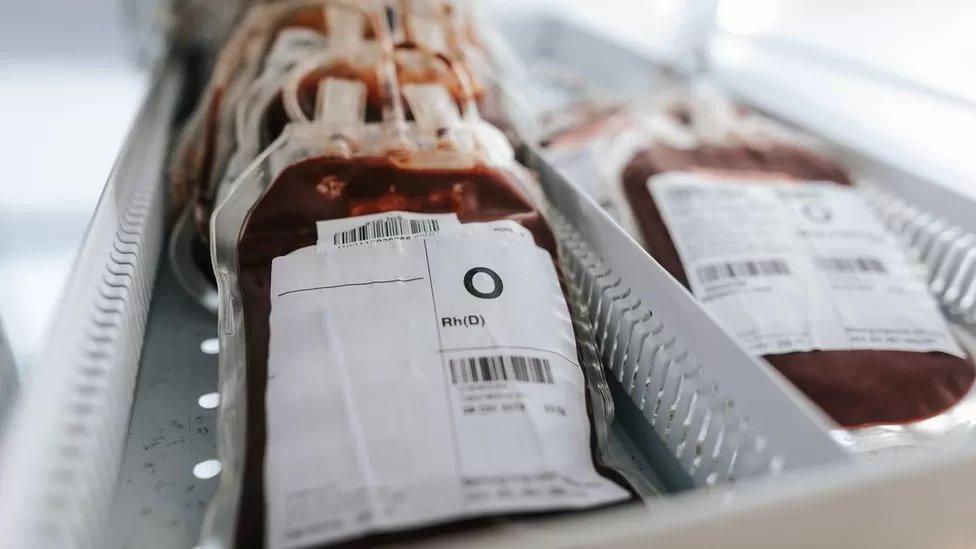NHS calls for more Gen Z and millennial blood donors
- Published
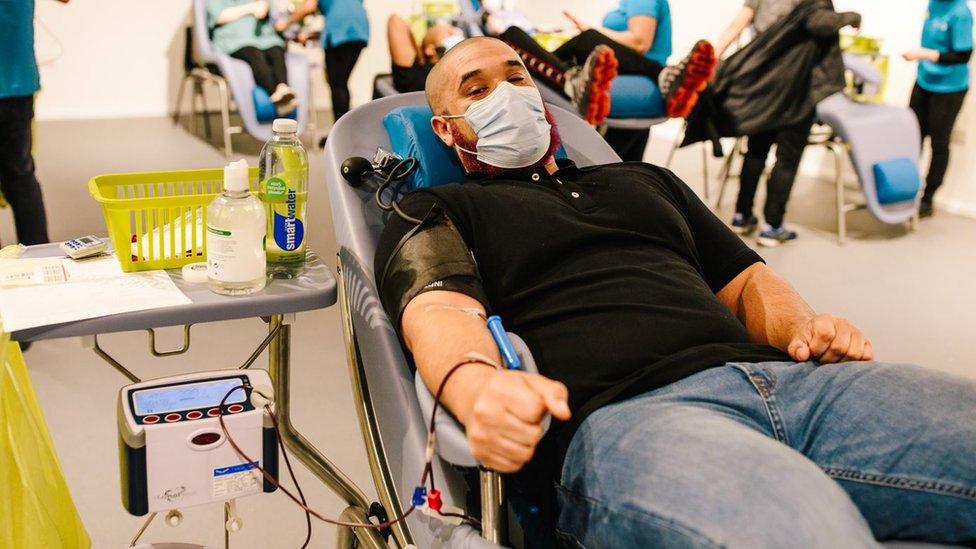
The NHS is encouraging young people aged 17-35 to donate blood
The NHS is calling for more young people to give blood as figures show more than half of donors in the south west are aged 45 or over.
Statistics released by NHS Blood and Transplant, based in Filton, Bristol, show the region has the highest proportion of older blood donors in England.
Over-45s make up 56% of regular donors, a rise of 4% in the last five years.
During that period, the proportion of young donors aged 17 to 24 has halved.
Gen Z is people born between 1996 and 2010, while millennials were born between 1981 and 1996
A new campaign from NHS Blood and Transplant particularly aims to recruit more young donors of black heritage, as they are more likely to have the blood type needed to treat sickle cell, external - the fastest growing genetic blood disorder in the UK.
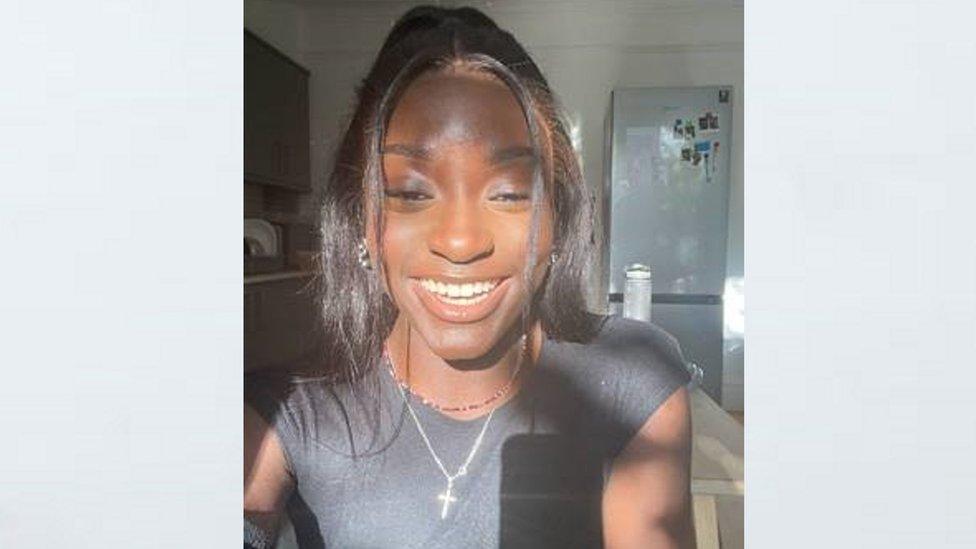
Student Tami Aderonmu found out that her blood is a match for patients with sickle cell
Tami Aderonmu, a 19-year-old student at the University of Bristol said she is now a "donor for life", after she gave blood for the first time just before Christmas.
"Needles don't really bother me but I still expected it to be scary. But it was the opposite," said Ms Aderonmu.
After her first donation, she discovered that she has the blood type that sickle cell patients need.
"My mum is a doctor and has told me how important ethnically matched blood is for treating sickle cell," she said.
"Sadly, she has lost family members to sickle cell. So it feels special to me that my blood can help others with the condition."
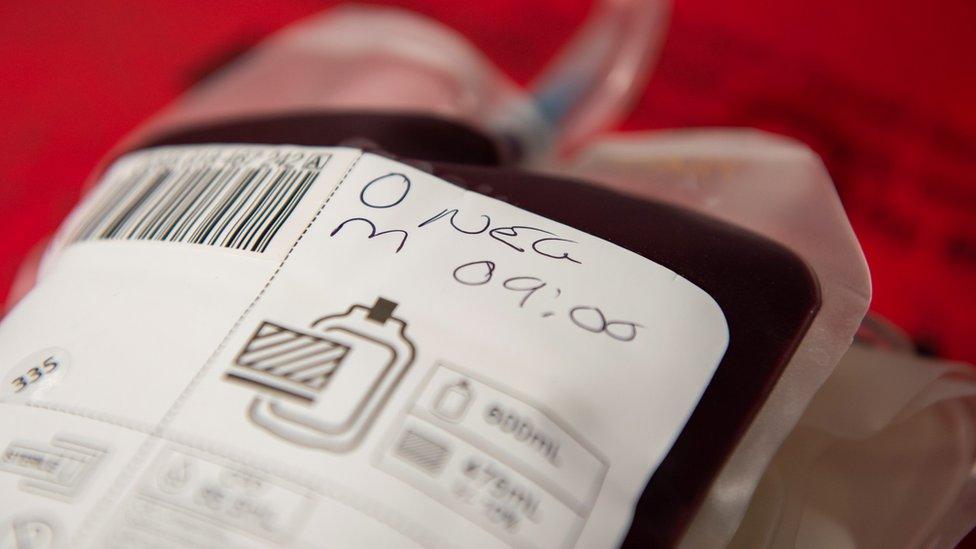
Young people can "become lifesavers" by giving blood, said Dr Jo Farrar
Dr Jo Farrar, chief executive of NHS Blood and Transplant, said it has never been more important for young people to "become lifesavers" by giving blood.
"Because lifesaving blood only has a short shelf life, we need to constantly collect it and need a steady stream of new donors," added Dr Farrar.
"For the first time in five years, we have more donors who are aged over 45 than under, so it has never been more important for younger people to become lifesavers by giving blood."

Follow BBC West on Facebook, external, X, external and Instagram, external. Send your story ideas to: bristol@bbc.co.uk , external
Related topics
- Published22 October 2023
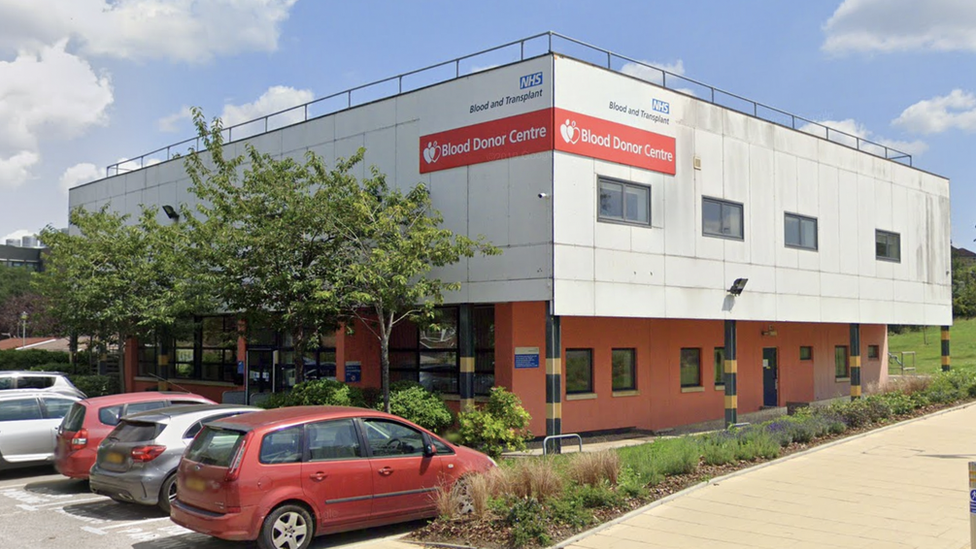
- Published15 February 2023
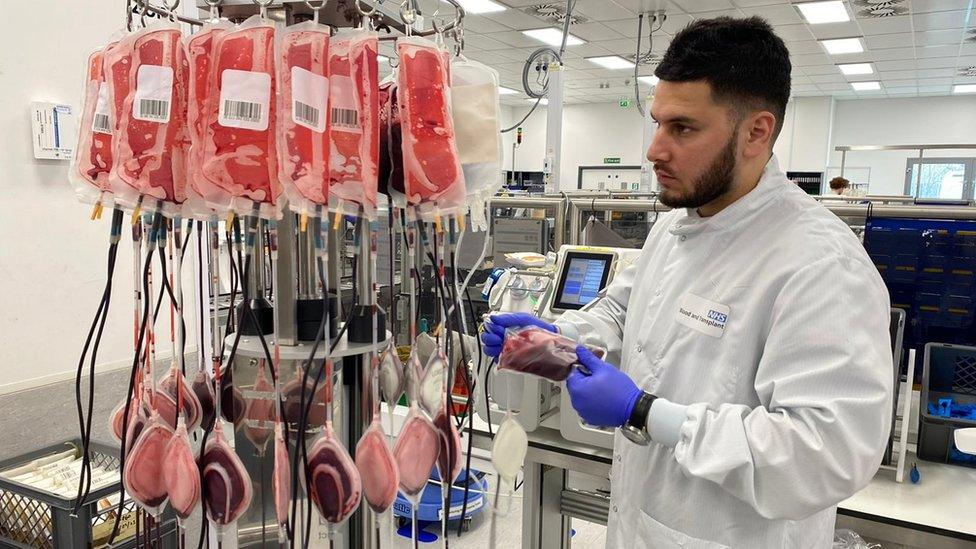
- Published27 October 2022
